Terminology to Know When it Comes to Your HVAC System
Spring is here: flowers are blooming, families are planning vacations, and temperatures are rising. If you live in Florida, you are already mentally prepared for the weather to heat up significantly. That’s why Spring is the ideal season to give your HVAC system a thorough once-over to make sure everything is functioning correctly.
A well maintained system is a long lasting one, so it’s important to stay on top of minor issues like leaks and other minor repairs now to insure a durable system for the future. Whether you check your air conditioning and heating units yourself or hire a professional AC repair company to handle your yearly inspection for you, it’s important to know the basic ins and outs of your system. Here are some common terms to keep in mind regarding your heating and air:
Transitioning Your HVAC System from Winter to Spring
Before you head outdoors to bask in gorgeous spring weather, make sure your HVAC system is ready for warmer temperatures. Below are steps you can take to initiate a smooth transition from blustery winter to cool spring.
Don’t Let HVAC Efficiency Fall Through the Cracks
Since ductwork is mostly hidden behind walls or in the attic or crawl space, you probably don’t give it much thought. But it could be a major source of energy losses if it’s not properly constructed and well sealed. A typical house with central air conditioning and heating might lose as much as 30 percent of its cooling and heating energy due to ductwork problems.
Major ductwork repairs and duct sealing are jobs that are best left to HVAC professionals, but there are some things you can do before you call in the pros. Here are some basic do-it-yourself tips for increasing HVAC efficiency by repairing your ductwork:
- Inspect the ductwork – Look at the ducts that you have easy access to, such as those that run through closets or the attic. Take note of any duct joints that have come apart, flexible ducts that are crushed or kinked, holes in ducts, and ducts in unconditioned spaces such as your attic or crawl space that should be insulated.
- Make basic repairs – Use mastic to seal duct joints and seams. Common cloth duct tape isn’t adequate for sealing ducts since it deteriorates quickly under harsh conditions. Try to straighten any crushed or kinked flexible ducts. If they won’t hold their shape after you straighten them, replace them if they’re in easily accessible locations.
- Insulate ducts in unconditioned spaces – After you’re finished with basic duct sealing work, add insulation to ducts that run through your attic, garage, crawl space or other unconditioned areas. Heat transfer by conduction from uninsulated ducts can account for a lot of the energy losses from your system.
- Get professional duct sealing help – Major duct sealing, ductwork repairs and duct insulation jobs should be left to the pros. Your HVAC contractor can get to ducts in hard-to-reach spaces and will know how to apply the correct adhesives, clamps, screws and insulating materials to do the job right.
Call us at Cox Air Conditioning & Heating for help with HVAC Efficiency. The money you spend on ductwork repairs will pay for itself in reduced energy bills.
Image via Shutterstock.com
Follow the Energy Star Logo for Efficiency in HVAC Upgrades for Your Clearwater Home
For the majority of the year in Pinellas County, you will find an air conditioner can help maintain a comfortable temperature in your home. If you are considering upgrading your A/C unit, you’ll want to make sure you have the best bang for your buck. By finding an energy efficient air conditioner and a professional HVAC installer you will make sure you won’t waste any energy savings.
Consider that approximately half your energy bill each month comes from your HVAC system. If your air conditioner is more than a decade old, it is operating much less efficiently than a new A/C unit. Upgrading to a model with the Energy Star logo could cut your energy bill by as much as 30 percent. The federal Energy Star program gives you the chance to not only lower your energy bill, but as it centers around energy efficiency, you’ll also be helping the environment at the same time.
You will also want to find a professional HVAC installer who is familiar with products bearing the Energy Star logo. It would be a shame to have spent time researching Energy Star certified air conditioner models only to have it installed improperly. A NATE-certified technician can also help you determine the proper A/C unit for your home, and can suggest any additional upgrades to your system.
For more expert advice about HVAC systems and the Energy Star logo, contact Cox Air Conditioning and Heating. We have been serving the Clearwater, Tampa, St. Petersburg, Palm Harbor, Trinity, and West Chase vicinity for more than 50 years.
What Is HVAC?
Most of us have heard the acronym “HVAC.” It stands for residential and commercial heating, ventilation and air conditioning. HVAC is also known as climate control, and it includes one or more indoor air treatment components. A well-designed and properly maintained HVAC system provides a comfortable and cost-effective year-round indoor environment by maintaining consistent temperatures, balancing humidity levels and delivering a steady flow of fresh air.
Top Risks Associated with DIY AC Repair
Are you having problems with your home’s air conditioning system? Many people in this situation try to save money by attempting DIY air conditioning repair. However, do-it-yourself AC repair isn’t something that professionals recommend. Keep reading to learn more about how why it’s always better to hire licensed HVAC specialists for all air conditioning repair jobs.
Air Conditioning Systems Are Complex
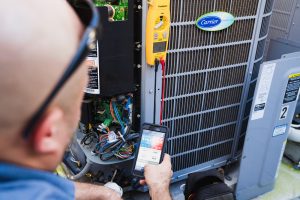
For example, does your air conditioning unit keep tripping the breaker? Because you don’t have the training that an HVAC professional has, you might think all you need to do is change the breaker. So, you look up a tutorial to change the breaker, and the fix doesn’t work. Now, you’ve spent money on a part you didn’t need, wasted time fixing something that wasn’t broken, and you still don’t have air conditioning.
Air Conditioning Repair Requires Special Tools
Depending on the problem, you’ll need more tools that what’s in the average DIYers’ toolboxes. Some of these tools aren’t even available at your local home improvement store, and if they are, you might not know how to use them. Professional HVAC contractors have all the tools, the equipment, and the know-how to make efficient repairs that ensure your air conditioner problems go away.
Access to Parts
Sure, you can find air conditioning filters at your local home improvement store. You might even find an AC capacitor at the hardware store, but that’s about all you’ll find parts-wise at these stores. That’s because air conditioners require specific parts that aren’t available to the general public. Air conditioning repair companies must order these parts from the manufacturer or, in some cases, wholesale distributors. So, although the YouTube video might make it seem easy to install the part, you have to find it first, and that can be the most challenging part of the repair process.
Don’t Give Up Your Valuable Time
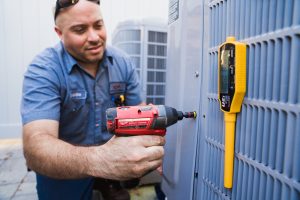
Does professional air conditioning repair cost money? Yes, it does, and sometimes those repairs are costly. However, you’re paying for expertise and peace of mind. You know that the job will get done right the first time and you’ll be cool and comfortable in your home. Peace of mind and time are worth the money you pay for professional air conditioning services.
If your air conditioning isn’t working and you need repair services, Cox Air has the tools, the expertise, and the availability to help you today. Call the local pros at Cox Air in Clearwater, FL, at (727) 442-6158.
Tips to Negate Foul Air-Conditioning Smells
Many have experienced this in the past: you turn on your air conditioner to make your home more comfortable, but when it kicks in, you notice a bad smell emanating from the vents. Air conditioner odors can occur for several reasons. Knowing the cause of the scent is essential to fixing the issue and making it go away. Keep reading to learn more about why the smells appear and how to get rid of them.
 Why Does My Air Conditioner Stink?
Why Does My Air Conditioner Stink?
Rotten smells coming from the AC can be the result of many different things. One of the most common AC issues people experience is referred to as “Dirty Sock Syndrome.” This occurs when bacteria and mold build up on the evaporator coil and create a moldy odor that is similar to dirty socks. Another common AC smell is heating or burning wires. This is a distinct odor that is caused by a loose cable or short-circuited board. Do you smell the scent of rotten eggs coming from your vents? If so, it may be caused by a dead animal in the air duct. This is a serious situation that will require professional help to fix.
How to Remove AC Odors
The causes listed above are just a few of the many things that can cause a bad air conditioner smell. To get rid of the smell, use the tips below.
- Clean the AC: Though some parts of the AC must be professionally cleaned, you can clean the air filters, outdoor unit, and ducts on your own. All you need is a rag, brush, and a vacuum cleaner with a long hose attachment. Cleaning will help to remove and prevent any bacterial buildup.
- Install Duct Filters: These help to control odor and keep your ducts cleaner. You can easily find them at your local home improvement store.
- Perform Seasonal Maintenance: Getting your system inspected regularly helps it to stay clean and operate efficiently. The technician will also keep their eye out for any issues that could create a foul odor in the future and repair them before they progress any further.
- Use Artificial Odor Control Methods: Sometimes, the odor may not be coming from the HVAC system, but rather the air outside. In this case, you may need to rely on other odor control methods, such as candles, aerosol sprays, and incense. You can also use an air purifier or put baking soda inside the ducts.
 When to Seek Professional Help
When to Seek Professional Help
Some air conditioner issues require professional help fix. If you have done everything you can and the smell still continues, it is time to call an HVAC professional. They can inspect every inch of your HVAC system and discover the root cause of the odor. A technician can also clean every nook and cranny of the system. This is essential if your unit is severely clogged with dust and debris, or if you notice mold growth inside the air conditioner. You also need to call a professional if you suspect there is a dead animal inside one of the air ducts. Because this can cause health issues, it requires cleaning and disinfecting by a professional.
[IMAGE 2]
If you’ve noticed foul odors coming from your air conditioner, call on an expert from Cox Air to see how we can get your home smelling fresh again.
5 Common Issues with Older AC Systems
With so much else going on in your life, the last thing you want to worry about is your air conditioner breaking down. Unfortunately, when you have an older air conditioner, the chances that it will fail grow higher and higher with each passing year. Dealing with a broken air conditioner can be a costly and time-consuming issue, especially during the summer when you need it the most. To prevent a breakdown this year, read on about a few of the most common issues 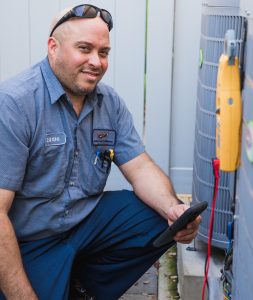
Electrical Difficulties
Air conditioners are made up of a complicated system of various electrical pieces. Wires wind through the unit, connecting the circuit boards to the compressor, coils, fans, and other parts. If you have an older AC, there is a higher chance that something could go wrong with the electrical system. A wire could fray or the capacitor could break. With so many different electrical pieces, it’s likely that something could go wrong.
Nonfunctional Fans
The fan in your air conditioner is responsible for making the hot air flow out of your home and the cold air flow in. Without a working fan, your AC won’t function. If the fan moves too slowly or does not move at all, the unit will be unable to cool down your home. Fan problems can be caused by anything from something simple like excess debris in the unit to something more complex like an electrical issue. Either way, you should hire a professional HVAC contractor to investigate the matter further.
Decreased Efficiency
As your AC gets older, it will become less efficient. If you’ve noticed your energy bills getting higher over the past few years or that you need to run the AC for longer than usual, this could be your problem. When an air conditioner gets less efficient, it uses more energy to keep your home at a comfortable temperature. With regular maintenance, you can likely solve this issue. However, in some cases, it may require you to get the whole unit replaced.
 Leaky Refrigerant
Leaky Refrigerant
Older air conditioners also tend to leak more than newer models. If your energy bills have increased, the coils are frozen, or your AC isn’t cooling your home as well as before, you may have a leak. This is typically caused by a crack in the coils that circulate refrigerant through the unit. If you believe that refrigerant is leaking from your unit, contact an AC specialist as soon as possible.
Regular Wear and Tear
Like every other appliance, your air conditioner will begin to show common signs of wear and tear as it gets older. The more you use your unit, the faster it will deteriorate. Eventually, your unit will break down and need to be replaced. However, you can extend its usable life by performing regular maintenance. Clean the outdoor unit, change the air filter, and hire an HVAC professional to perform an annual exam every spring. With regular tune-ups, you can catch small issues before they become larger ones and keep your AC in working condition for a long time to come.
AC Unit Corrosion: What You Need to Know
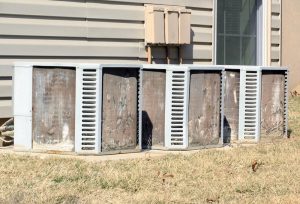
However, air conditioning can also be expensive and require regular maintenance. Especially in humid areas, outdoor air conditioning units may wear out and corrode faster. Regular maintenance of air conditioning systems will make them last longer, run more efficiently and may even save you money.
Here’s important information about AC unit corrosion.
Why Does Corrosion Occur?
There are two main types of corrosion: pitting corrosion and formicary corrosion. Exposure to fluoride and chloride will wear down and thin the coils on your AC system. Fluoride and chloride linger in the air in humid coastal areas. A pleasant salty breeze might be refreshing, but it can be bad for your air conditioning system. If you live in a humid coastal area like Florida, you are at greater risk for AC unit corrosion.
Formicary corrosion can hurt the metal parts of your air conditioning systems if not cleaned properly. Many cleaning products can damage can wear down the protective coatings on metal parts and hurt your system. This is why you must be very careful about trying to clean the system yourself. It may be best to work with an HVAC professional who can help protect your outdoor AC unit.
How Does AC Unit Corrosion Affect Me?
Corrosion can be an expensive problem. If not dealt with it can require coil replacement or even and entire system replacement. Experts recommend scheduled HVAC maintenance to protect against corrosion. If you live in a hot coastal area, you may want to consider purchasing an Air Conditioning Maintenance Service Agreement because of the higher risk to your system. Salty air in places like Florida can rust condenser fins, terminal blocks, wire harnesses and other metal contact points faster, and regularly scheduled maintenance can help alleviate these problems.
What Should I Do About It?
Regular maintenance is the best way to prolong the life of your air conditioner. Experts can apply various protective coatings to increase the life of your system and prevent corrosion. Furthermore, regular maintenance on your system is a must to keep it working at peak efficiency and to avoid costly repairs.
In Florida, the Gulf and other coastal areas, systems are at greater risk. At Cox Heating & Air Conditioning, we provide the professional service and advice you need to maintain your AC system, protect your home and save money. Contact us today to schedule an inspection or maintenance on your AC system.
5 Tasks to Complete When Turning on the Heat This Winter
Now that winter is officially here in Florida, it’s time to consider your heating system. While you may not need to heat your home that often during our mild winters, it’s still a wise idea to ensure the system is in good working order.
Before turning on the heat this winter, even if you’ll only be using the system occasionally, perform a few simple maintenance tasks.
The following steps will help guarantee that your heater works well when you need it.
1. Check for Adequate Clearance
Many heating units are located in attics or garages where items may be temporarily stored without much thought during the summer months. Take a good look around the furnace or heat pump and make sure there isn’t anything obstructing airflow before turning on the heat.
During inspection, it’s also important to remove any potentially combustible items from the vicinity of the heater, such as paper products or chemicals like cleaning fluids.
2. Clean the Unit Exterior
Vacuum the heater and the surrounding area. Use a soft brush attachment and clean up any dust from accessible parts of the heater. In addition, vacuum around the heater so that once you turn the unit on the filter doesn’t absorb stray dirt and dust.
3. Replace or Clean the Air Filter
For optimum efficiency and to preserve the integrity of your HVAC system, make sure that your heater’s filter is free of debris and dust. Dust-free filters will ensure an even, fresh airflow.
If the furnace has a replaceable filter, it’s often best to exchange it with a new one before turning on the heat. Check the size on the current filter or the owner’s manual. If the filter is reusable, remove dust and debris buildup with a vacuum cleaner and then wash the filter out with soap and water. Rinse the filter well and let it dry thoroughly before reinstalling.
4. Test Your Carbon Monoxide Detectors
Now is an ideal time to ensure that all carbon monoxide detectors in your home are working properly. If they’re battery operated and it’s been a while since you changed the batteries, do so now. Once you run the heater, if the carbon monoxide detector ever goes off, immediately turn off your heater, open the windows and call an HVAC professional for an assessment.
5. Consider Getting a Preventative Maintenance Check
Many furnace manufacturers recommend getting your heating system checked and serviced once a year. The ideal time to have an HVAC professional inspect your system is before you need to turn it on. During the inspection, your heater will be checked for any leakage and blockage in the venting system. The technician will also ensure that the heater is igniting safely.





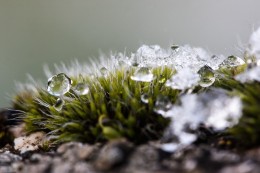
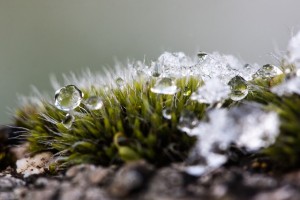
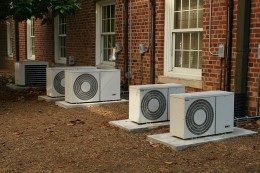
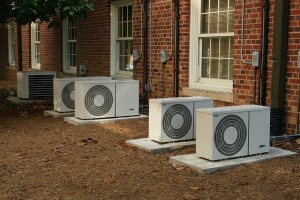
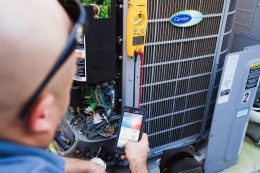
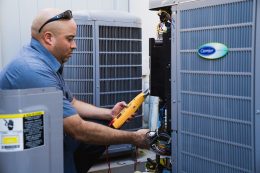
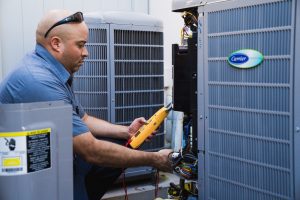
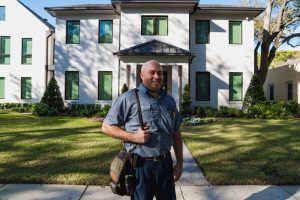
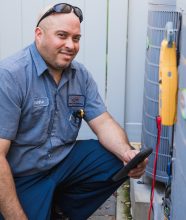
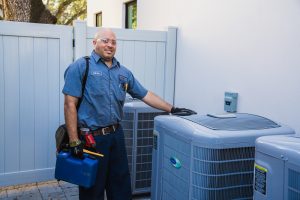
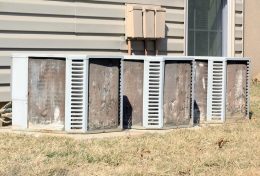
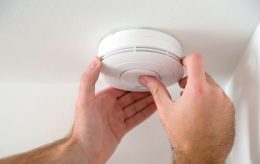
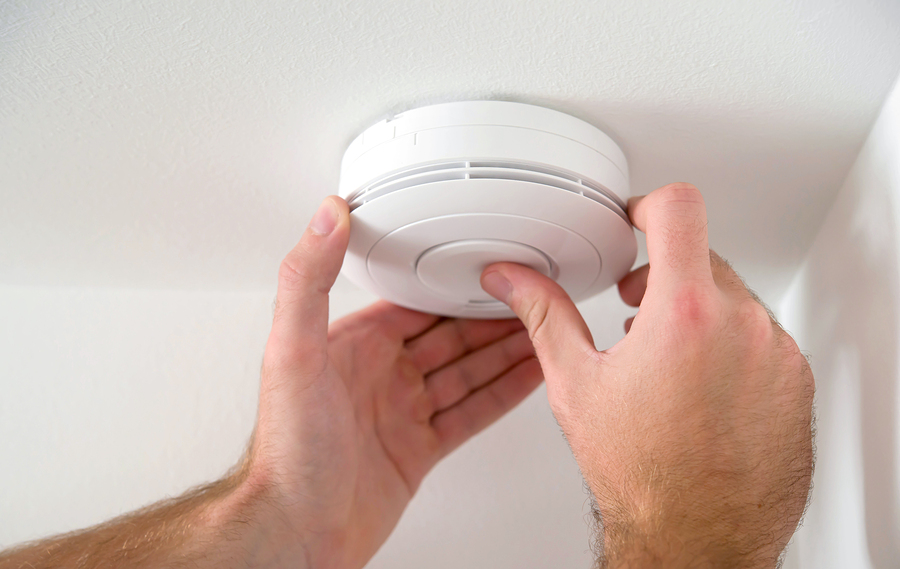

Recent Comments